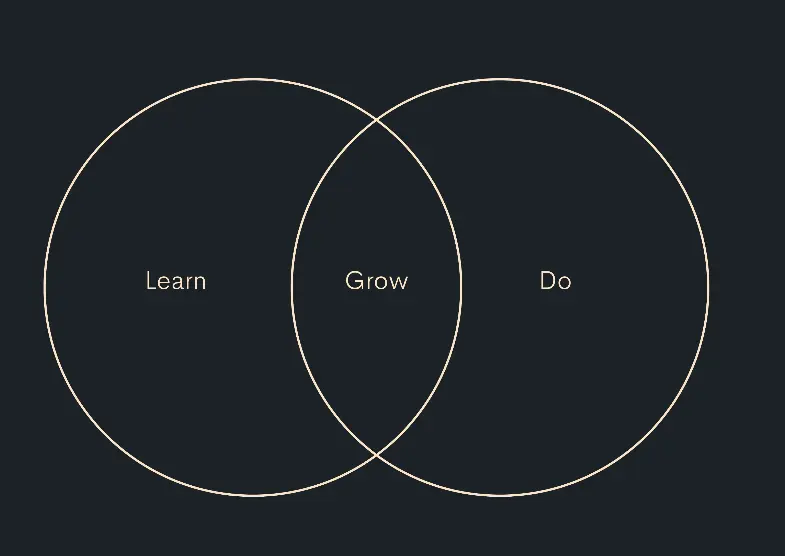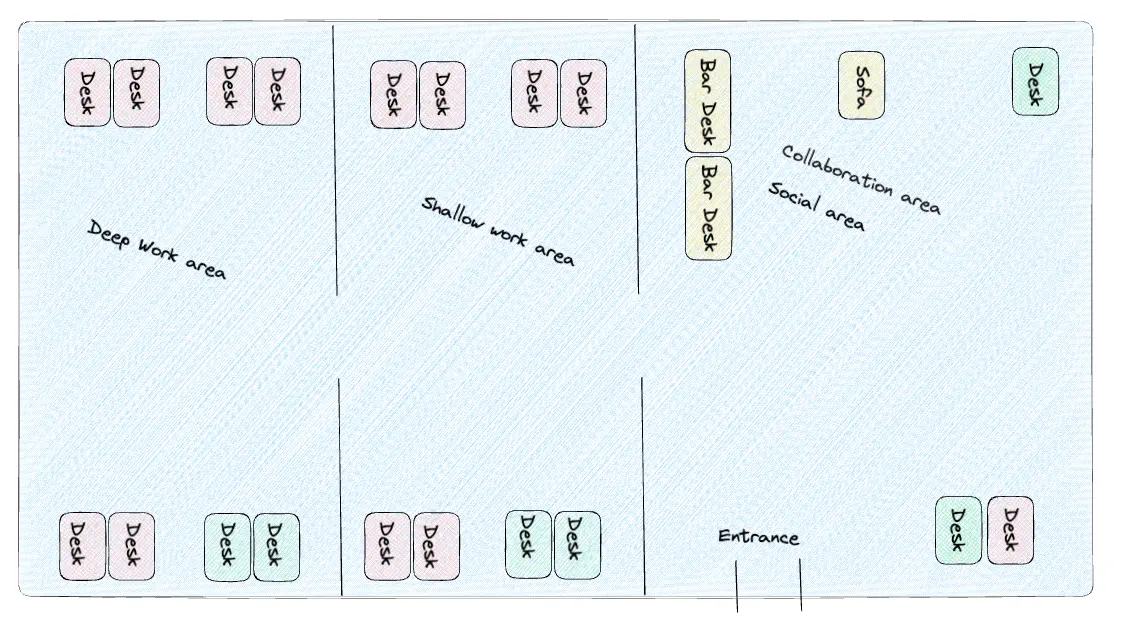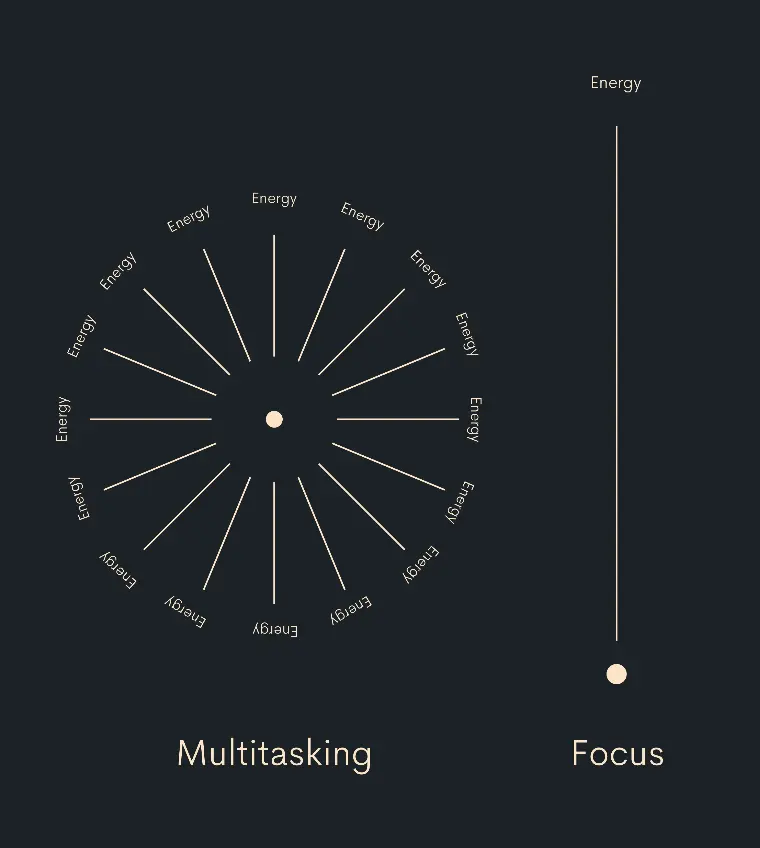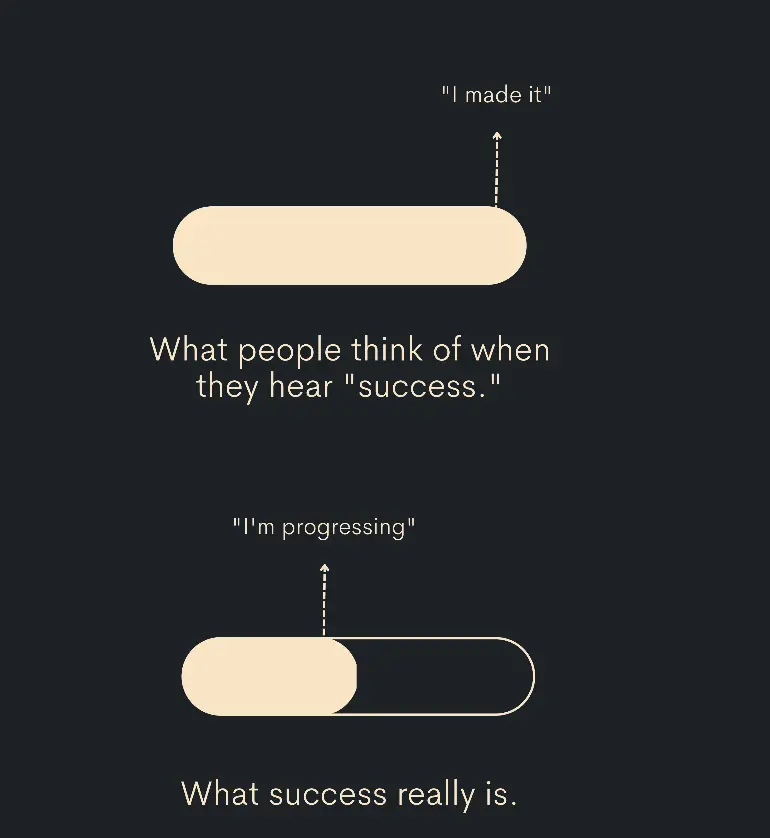
Unleash the power of Deep Work in the modern workplace
Jun 19, 2023 - 10 min readDeep work is a superpower in the modern world.
Mastering the ability is essential in the modern world, where notifications and distractions constantly threaten your concentration and productivity.
The following is my take on how to create a culture of growth, productivity, and skill development while increasing fulfillment and well-being.
Intro
A few months after I started as a manager at Novicell, I sent out a survey to everyone in the department. I had my personal goals and I was also hired to improve and change a range of things, but everything came from the management level. But I also wanted to understand my key focus areas, based on the team's insights.
One thing that stood out very clearly to me was that people couldn't concentrate at work. It was a very clear result from the survey and I started to analyze the office environment to see what and how we could implement change and start doing more Deep Work.
Understanding Deep Work and Flow State
The term Deep Work was coined by author Cal Newport in his book with the same title.
As he describes in his book, Deep Work is nothing new and it is not something he "invented". It is a mental state where one is fully immersed in an activity so he forgets time and place.
It is also known as the flow state, which is a term from 1970 by Mihály Csíkszentmihályi.
Some also refer to it as being "in the zone" or hyperfocus.
Even though the concepts differ a bit, they do share a lot of similarities.
Definition of Deep Work
Cal Newport defines Deep Work as:
“Professional activity performed in a state of distraction-free concentration that pushes your cognitive capabilities to their limit. These efforts create new value, improve your skill, and are hard to replicate.”
This is familiar for most people, but maybe not always something they experience during work, maybe through movies, playing music, computer games, or similar activities.
I remember practicing this a lot during my studies at university. I always had a hard time getting started on tasks or assignments, but once I climbed the hill of pulling myself together and actually starting, I usually ended up enjoying it.
The joy of being fully immersed and productive gives this addictive feeling of satisfaction.
Recalling this feeling when motivation is missing and practicing deep work activities and routines had a huge impact on my performance and how enjoyable it was.
Differentiating between shallow work and deep work
We can't always be in the flow state and we can't only do deep work. We often go back and forth between deep work and shallow work.
Shallow work is all your tasks that do not necessarily take a long time or a lot of effort. It could be answering an email, booking a meeting, or some of those daily lightweight tasks we execute during a normal day at work.
Cal Newport defines shallow work:
“Non-cognitively demanding, logistical-style tasks, often performed while distracted. These efforts tend to not create new value in the world and are easy to replicate.”
I would argue that we need both to function, but the key here is understanding the difference between the two and utilizing this understanding and benefiting from it.
There are several ways to do this, which I will discuss later, but understanding and identifying the two is the first step.
The modern world pushes us more toward shallow work and this can lead to dissatisfaction and lack of fulfillment in your (work) life.
But that is another blog post.
Benefits of deep work and flow state for developers and their skill development
When we are in the zone, fully immersed in the task we are doing, forgetting time and space, this is where the mind thrives. It is in this mental state that the magic happens.
We push our cognitive capabilities to their limit while being creative and efficient; this is where we improve our skills, maximize our potential and learn new things.
Mastering this ability in the modern world is absolutly key. We are constantly distracted and always available, so this skill is slowly disappearing, while the need for it is increasing.

Well-being tends to increase when you are productive. Up to a point of course.
So, the idea is not only to maximize productivity but also to increase general well-being, satisfaction, and fulfillment.
Creating an Environment for Deep Work
During the covid lockdown, a lot of companies experienced one of the benefits of remote work. Increased productivity and focus while working from the home office. And it created a lot of debate regarding the office environment.
The open office is very common and is by no means anything that fosters deep work.
The constant auditive and visible disturbances will make it almost impossible to do deep work.
There are some upsides to the open office that we need to take into account. It does foster communication, collaboration, and socialization, which are also key elements for a good working environment.
The question is how to get the right mix of socializing at work while providing the option to do deep work sessions.
Minimize distractions and interruptions
I have started a few different initiatives and experiments with the office at Novicell. As a manager, I see it as my responsibility to make sure the office is a place where everyone likes to be both for work and socializing.
I am a strong believer in and advocate for remote work. It is important to me that working from home or remotely is a free choice, a tool you use, an option you got, and not something you are forced to do in order to do your job.
If employees don't go to the office, then the manager should look into the reasons behind this and see what needs to be changed. Nothing good comes out of forcing behavior on people.
I've asked around and one of the things that brings the joy of work down is having too many interruptions and distractions. Pointless meetings or bad-timed meetings are one of the worst. Some key factors in developer happiness.
Foster a culture of deep work
- Establish dedicated deep work periods
- Encourage effective time management techniques
- Set boundaries and encourage respect for focused work
One of the initiatives was to encourage developers and help them block time in their calendars for deep work. This made it visible to everyone that they were in the zone and shouldn't be disturbed by status updates or anything like that.
It actually also held them accountable for their "promise" to themselves regarding a productive deep work session.
For some developers, I set up dedicated deep work periods, mainly to get them into a routine, but also to practice it collectively.
Another initiative was that I asked everyone to fill out a schedule of deep work and shallow work hours, and I made sure they were only booked for meetings outside their deep work hours or focus hours.
Usually book meetings around a time when they are not doing deep work. That could be right after lunch.
It is very important to defragment the calendars. If we have fragmented calendars we do not foster longer streaks of deep work, but mainly just jump between shallow work tasks.
Support the physical workspace
I have seen a lot of different versions of the open office, but haven't yet seen a perfect setup.
That might be because what we want is contradictory.
On one side we want a calm, quiet, and slow office, where people are doing deep work, and on the other side we want the office to be a space buzzing with collective idea-sharing, dialogue, and collaboration.
After some time spent observing, I decided to change the office setup. I divided it into 3.
The first part is where I sit with the other managers. It is the entrance to the office and also works as the socializing and collaboration area. We have sofas, a fridge, and high tables where you can sit and talk or work.
The next room is where the project managers are sitting. Their job requires a bit shallower work and meetings. They often do meetings at the desk. This disturbed everyone in the past.
In the end, we have the room where the developers are sitting. This is a quiet room, with a few free desks, so others can come and work from there.
In this room we do not talk on the phone, do meetings at the desk, and so on. We do talk, but we often move out of the room if it is not just quick questions.
 (rough sketch of the office)
(rough sketch of the office)
Everyone is free to move between the rooms, depending on what they want or what they are currently doing. Everyone's also got their own spot, but there is always a free desk in each room that can be used by anyone.
I do not believe in completely free seating. We are habitual people, so usually people will just always sit at the same desk, or at least prefer to.
Implement effective communication strategies
Another key component in fostering and applying deep work at the office is communication. How it is done, when, why, and on the prerequisites.
A shared mindset and understanding can make this way more efficient and, in the end, provide the option for longer streaks of uninterrupted deep work time.
From my perspective, asynchronous communication is one of the most important tools when it comes to deep work.
The interesting thing about the always-on concept of constant availability is the hidden paradox. You have the option to constantly communicate, but you also have the option to do it asynchronously. Unless it is a real-time verbal conversation, you have all the options in the world to consume or respond to whatever communication is going your way, when it suits you.
The option to do it asynchronously is maybe one of the greatest strengths of digitalization.
In a healthy culture, there is a shared understanding that not everyone has to or can be available to everyone all the time.
It is simply too much to ask, completely unreasonable.
As a manager I can't stress enough that we don't HAVE to always answer instantly.
And the constant communication is bad for you.
Take advantage of that you can be displaced by time and place and still communicate effectively.

This applies even more when people are working remotely.
In an unhealthy culture, they would feel the pressure or need to constantly answer quickly, just to justify that he is actually working.
I have seen several examples where the lack of trust makes it extremely stressful to work remotely, so stressful that the benefits disappear completely.
We should take full advantage of the opportunities that written or asynchronous communication provides. The flexibility is truly unique in so many ways that it should be its own blog post.
By communicating asynchronously, you are actually provided with the time and option to sit down and put some real thoughts into your response and produce a high-quality, well-thought-out piece of communication that your colleague can actually use!
Developing a Shared Vocabulary and understanding
The first thing I did when introducing Deep Work and my ideas was to gather everyone from the team and presented my findings, thoughts, and ideas in an open forum.
With everyone in the room, everyone got the same information and thereby hopefully a somewhat shared understanding of deep work and its benefits.
In the presentation, I made sure to glorify Deep Work, so it is a state we all achieve to reach during our work day.
This had a double effect.
On one hand, it makes the team members try to reach it.
On the other hand, it makes them respect when others are doing deep work.
Creating a shared vocabulary and understanding makes it a lot easier to implement and use in our everyday life.
The little notification, flag, or indication that someone is doing deep work is respected, encouraged, and something that we strive for.
And suddenly dismissing activities due to deep work is actually well-regarded!
Educate the team on deep work and flow state concepts
By collectively implementing a change that fosters deep work, I've noticed that it makes it easier to talk about concentration and the work environment. We made it a lot easier for everyone on the team to use this mutual understanding to both utilize asynchronous communication, but also to protect one's own time.
Not making it 100% distraction-free, but at least understanding the cognitive cost of going in and out of deep work sessions.

This deeper understanding can also help each individual team member to plan his day and by understanding these concepts, make sure to get the full benefit of the deep work sessions, without having to worry if it is acceptable or if he misses out on something.
Discuss the benefits of deep work for individual and team success
Changes like this cannot be implemented by force. It needs to come from within the team.
I try to inspire, encourage and make sure that the environment is set up for deep work. But as a team, we have to implement our own rules or versions of them, which will be altered over time.
One of the things I've actively done to foster this cultural change was to lead by example. I interrupt when I've noticed unbefitting behavior and made sure to always move away from those who are doing deep work when I talk. For instance, to the zone for conversations and collaboration.
And of course, made it clear when I was doing deep work myself.
Nurturing Growth and Skill Development
The last section is about one of the great side effects of deep work. When we are in the zone, we are both producing high quality, but this is also where we develop our skills really fast.
Improving our skills and solving hard problems is a strong motivational force for most people.
To become good at something, you need to practice. Deep Work makes this practice time both immersive, but also very efficient.
Some believe that skill is something you gain from spending a certain time practicing it, which is partly true.
That equation looks something like this:
High-Quality Work Produced = Time Spend
But as Cal Newport argues, we are missing one factor: intensity and focus.
So, the equation is actually more like this:
High-Quality Work Produced = Time Spend * intensity and Focus!
Continuous improvement and celebrating achievements
We merely have to touch the surface of basic motivational theory to understand that progress is a huge factor that drives motivation. The satisfaction of progress provides meaningfulness in the work and makes you move forward both with your tasks and your skill.
There is a reason that every computer game is very good at visualizing progress. Making your progress visible and your next steps clear gives you the feeling of moving forward or progressing.
Staying with the computer game metaphor, we should stop and celebrate achievements, like we level up!
Sometimes we forget to do this. Reflecting on the journey and achievements by looking back does add extra fuel to the motivation.

It is important for a manager to facilitate these concepts, by setting clear goals, and actively celebrating success and achievements.
Embrace the continuous improvement and learning journey. Cognitive fitness is something that is trained and maintained.
The brain is a muscle you can actually train it and become better.
This is so extremely important to knowledge workers, to stay on top of the game, but also enjoy both being there and getting there.
Conclusion
We have reached the end. This article became way longer than planned, so it actually serves as a perfect example of deep work by itself. Not only writing it but also reading it requires a good deep work session!
Congratulations if you made it this far, then you must have been in the zone. :)
My advice is to prioritize deep work in the workplace. Encourage open discussions about concentration and foster a culture that values deep work and respects individual focus time.
By doing so, we can unlock this superpower of deep work, and maximize productivity, skill development, and the overall well-being of the team.
It will stay as one of my areas of focus in my never-ending quest of raising developer happiness at work, enforcing growth, and getting professional fulfillment through work.
Since implementing this, an increase in productivity and skill was very noticeable, and believe it or not, the number of people at the office increased too!
So, we are already benefitting from it and the team managed to turn itself into a well-oiled machine, with increased general well-being, efficiency in communication, joy, skill development, achievements, and collaboration, all while the stress level decreases.
The first step is to turn off notifications.
The notifications will be there after your deep work session, I promise! Take control and actively select when you want to check social media, mail, or whatever time-consuming shallow work activity you see yourself wasting hours on every day.